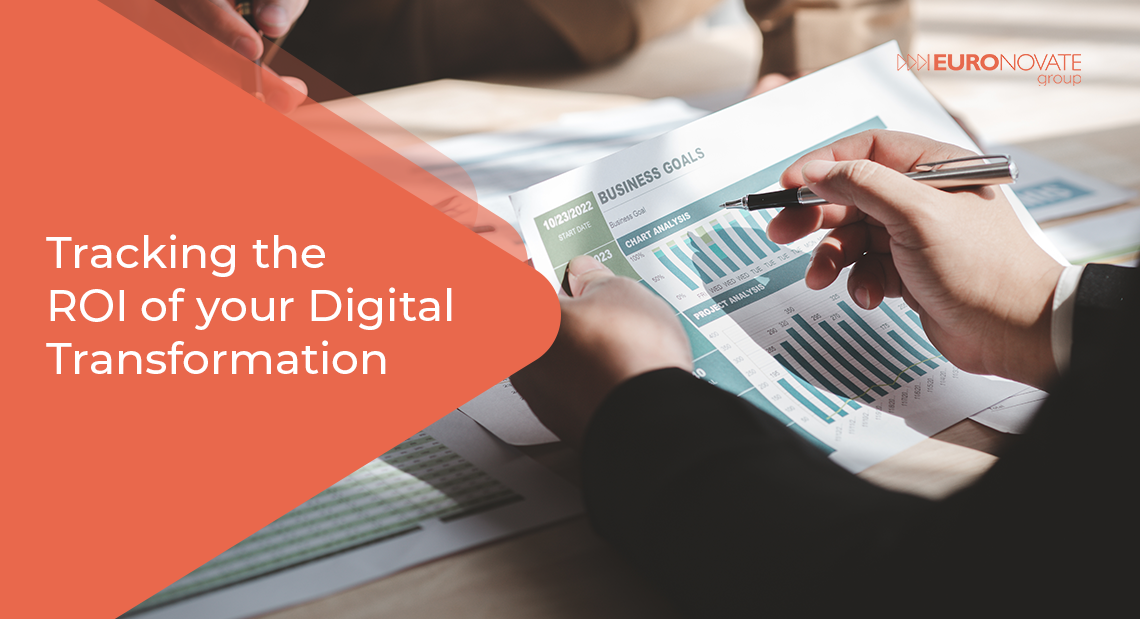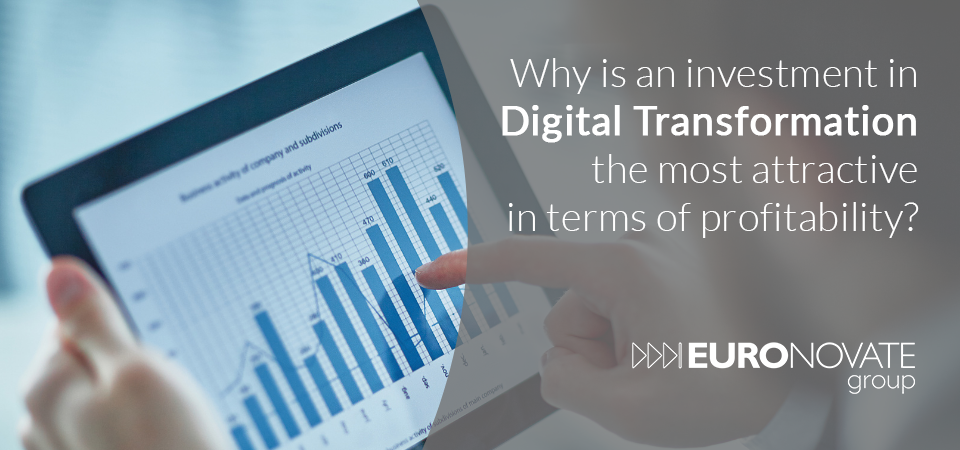During recent years, the term “digital transformation” has become a hot buzzword, as proof of the widespread use of digital technologies and computerized procedures to execute a company's daily activities.
Digitalization, the so-called process of transforming existing procedures into digital technologies, doesn’t represent just a temporary trend but a concrete business approach which is made to last.
Grand View report about Digital Transformation Growth and Trends¹ confirms that this market is expected to witness a CAGR² growth of 26.7% from 2023 to 2030, making it crystal clear for companies that leveraging on digital technologies is the key to gain a competitive advantage in the marketplace.
It is well known that a company's success is based on its quantitative and qualitative performance, that needs to be measured periodically to eventually adjust or rethink some business’ choices or activities.
Considering the companies’ conversion towards digital, how can they measure if their “digitalization” efforts are worth doing or not?
To answer this question, we must refer to the Return on Investment (ROI) which is a financial measure that calculates the ratio between net income and investment.
It represents a key indicator of the business performance, essential to understand how the company is going and whether certain investments are worth pursuing or not.
Jumping back to the digital transformation context, Altimeters’ report³ enlightens that 69% of business leaders find it really challenging to measure the value of digital transformation through ROI, because digital transformation must be measured by a variety of metrics.
PwC elaborated a digital ROI framework⁴ to establish a set of areas and metrics which companies should consider when measuring business’ ROI.
In the first place, the areas that a company must take into consideration when analysing their Digital Transformation ROI are six:
- Customers: is the business meeting and exceeding customer expectations?
- Employees: are employees engaged?
- Operations: are the business processes digitized?
- Safety and soundness: are digital assets and customer data protected?
- Infrastructure: are new systems and tools implemented?
- Disruption and Innovation: is the business prototyping, testing and promoting digital culture?
Once these areas are defined, businesses must establish some qualitative and quantitative KPI to track and measure the impact of their digital initiatives.
Here are some examples:
- Process quality improvement
- Product quality improvement
- Adoption of digital processes among customers and employees
- Increases in sales
- Security enhancement
How to understand if the company is successful in its processes?
Firstly, we must recall that implementing a digital transformation approach is expensive, long, and complex. So, companies must be aware that measuring each step of the journey is fundamental for building a whole and accurate picture of all the processes to readapt them if needed to reach business’ objectives.
Euronovate Group, digital transformation’s key player and facilitator, drew up a report which evidences the company’s e-signature solutions drive a positive ROI rate of 261% in three years⁵.
This study considers:
- Cost Savings in paper, printing, and warehouse archive
- Business growth with more contracts signed per year
- Environmental Sustainability with CO2 and Trees savings
- Reduced Time for Operations
Such results are excellent if we considered that, as we said before, implementing digital transformation processes is always challenging and time- consuming.
Euronovate Group provides companies with customized tools to optimize internal and external processes, reaching business objectives in a short period of time.
¹ Grand View, Digital Transformation Market Size, Share & Trends Analysis Report By Solution, By Service, By Deployment, By Enterprise Size, By End Use, By Region, And Segment Forecasts, 2023 - 2030
²Compound annual growth rate
³Altimeter, The 2016 State of Digital Transformation
⁴PwC, Realizing the value of digital investments
⁵Study based on 160 offices with 350 operators, 500.000 contracts per year, 3.000.000 paper sheets - signed




